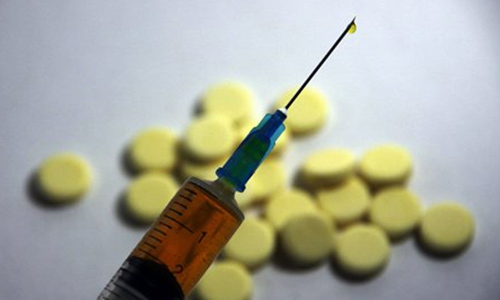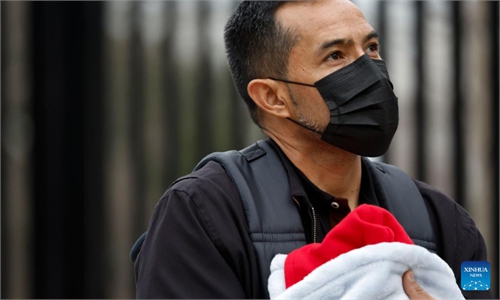
Antibiotics can come from being prescribed, from self-medication or from water or food that has been polluted with antibiotics. Photo: IC
Europe and North America have seen shortages of the key antibiotic amoxicillin and other medications as surging illnesses particularly among children have increased demand for the drugs.
Hospitals in many countries have come under pressure from a rising number of illnesses including what has been dubbed a "tripledemic" of COVID-19, influenza and the respiratory syncytial virus (RSV), which causes bronchiolitis.
But ramping up production of antibiotics has proved difficult for drug makers, particularly for cheap generic medicines that offer a slender profit margin.
In France, the medicines regulator ANSM said in November that there are "strong supply tensions" for the version of amoxicillin most used by children, warning the situation could last until March, 2023.
Germany, too, has sounded the alarm about shortages of a range of drugs including amoxicillin and other antibiotics.
Last week, the UK government issued "serious shortage protocols" for three penicillin-based antibiotics.
The move came after at least 19 children died from Group A Streptococcus (Strep A), amid reports that doctors and parents are struggling to find antibiotics to treat the illness.
Outside of Europe, amoxicillin has been on the US Food and Drug Administration drug shortage database since October. The FDA told AFP that it "is currently working with the approved manufacturers and others in the supply chain."
Winter in the northern hemisphere has brought a particularly nasty influenza season as well as spikes in other viruses such as RSV. The surge comes after two years in which pandemic measures such as quarantines, self-isolation and mask-wearing decreased the rate of such illnesses.
Pharmaceutical companies who had cut back production because of the previously falling demand are now scrambling to meet skyrocketing orders, causing delays.
The producers of the drugs' active ingredients have also struggled with shortages.
Sandoz, the generic drug division of Swiss pharmaceutical giant Novartis, told AFP that the "stock shortages at our competitors also contribute to the unexpectedly high sales of our drugs, and therefore to additional supply difficulties."
Antibiotics are old drugs whose patents have often fallen into the public domain, meaning that generic versions can be sold cheaply. Drug makers therefore have little incentive to produce such antibiotics.
Thomas Borel, the scientific director at LEEM which represents French drugs firms, said there had been insufficient investment from the industry "in view of the growing demand for this type of medicine."
Manufacturers including Britain's GSK have also ramped up production speed.
More broadly, some industry specialists have called for a new business model that combines the needs of patients and those of the companies that produce such cheap drugs.
LEEM's Borel said that "the pharmaceutical industry must be considered to be a strategic sector in which public authorities must be more vigilant than they have been in recent years."
AFP

